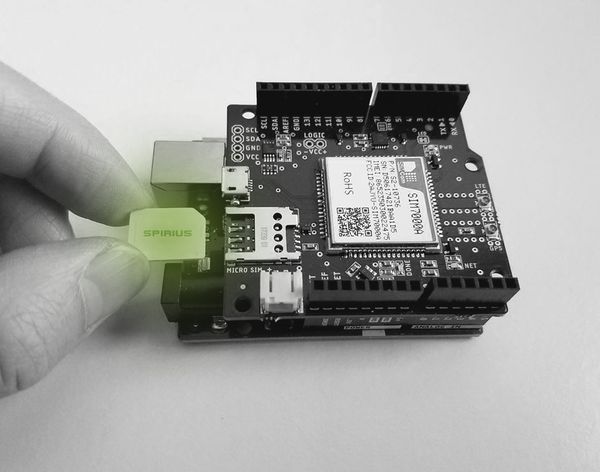Sim Card Iot The Ultimate Guide IoT SIM Cards
Sim Card Iot The Ultimate Guide IoT SIM Cards
Blog Article
Cellular Iot Sim Card eSIM 101 Introduction eSIM IoT
The landscape of manufacturing is evolving rapidly, driven primarily by technological developments. Among these advancements, IoT connectivity solutions for manufacturing automation stand out as pivotal parts reshaping how industries operate. The Internet of Things (IoT) integrates digital and bodily worlds, creating a network of interconnected gadgets that communicate seamlessly. This interconnectedness allows manufacturers to optimize their processes and enhance productivity.
Real-time knowledge is a cornerstone of modern manufacturing. Through IoT connectivity solutions, machines and sensors generate knowledge that present insights into production processes. This quick access to info empowers producers to make knowledgeable choices shortly. For occasion, if a machine is underperforming, operators can establish the difficulty and implement corrective actions without delay, finally minimizing downtime and enhancing throughput.
Predictive maintenance is one other important advantage of IoT connectivity options. By repeatedly monitoring tools performance by way of quite a few sensors, producers can anticipate failures earlier than they occur. This proactive strategy drastically reduces maintenance prices and improves the lifecycle of machinery. Instead of adhering to a reactive maintenance technique, organizations can optimize their maintenance schedules based mostly on precise machine situations.
Cheap Iot Sim Card IoT SIM
IoT technology additionally facilitates better supply chain management. With the mixing of sensors throughout the availability chain, manufacturers achieve enhanced visibility into inventory levels and material flows. This improved visibility permits companies to optimize inventory management, making certain that they have the necessary materials on hand without overstocking. Such effectivity translates to reduced costs and improved service levels, that are essential for maintaining a aggressive edge.
Automation and robotics are more and more reliant on IoT connectivity options. Smart factories combine automated methods powered by IoT to streamline production processes. Robotics geared up with IoT capabilities can talk with one another and modify their actions based mostly on real-time knowledge from the environment. This degree of synchronization enables the implementation of adaptive manufacturing systems that respond to fluctuations in demand rapidly and successfully. Iot Device With Sim Card.
Sim Card Per Iot Narrowband IoT SIM cards
Implementing IoT connectivity options requires a stable network infrastructure. Manufacturers must spend money on dependable and secure communication networks capable of handling the immense data generated by interconnected gadgets. 5G know-how is emerging as a crucial enabler of IoT connectivity in manufacturing. Its fast velocity and low latency help the real-time functions that are essential for data-driven decision-making.
Data analytics plays an important role in harnessing the full potential of IoT connectivity options. With a wealth of information generated from related units, manufacturers should employ advanced analytics instruments to extract actionable insights. Machine learning algorithms can establish patterns and anomalies in data that will not be apparent to human analysts. This data-driven approach enhances operational effectivity by driving continuous enchancment across manufacturing processes.
Cybersecurity is an essential consideration as producers integrate IoT solutions into their operations. The connectivity that IoT brings will increase the surface space for potential cyberattacks. Implementing sturdy security measures to safeguard important manufacturing systems is paramount. This includes guaranteeing that every one gadgets are secure, knowledge is encrypted, and continuous monitoring for threats is in place.
Worker safety is considerably improved by way of IoT connectivity solutions. Wearable gadgets outfitted with sensors can monitor the health and security of staff in real time. These smart wearables can alert personnel to hazardous circumstances, guaranteeing well timed intervention. Such measures not only shield employees but in addition contribute to overall productivity by minimizing the risk of accidents.
Iot Sim Card IoT SIM
The transition to smart manufacturing through IoT connectivity solutions additionally promotes sustainability. By optimizing processes, manufacturers can significantly cut back waste and energy consumption. IoT units help track useful resource utilization, enabling companies to identify areas where efficiency can be enhanced. These environmentally friendly practices not solely profit the planet however can even result in cost savings over time.
The influence of IoT connectivity options on manufacturing extends past the operational realm. They allow enhanced buyer engagement by permitting producers to ship personalized services and products. Through IoT-enabled gadgets, manufacturers can collect knowledge about buyer preferences, resulting navigate to these guys in the creation of tailor-made choices that better meet market calls for. This stage of engagement fosters buyer loyalty and strengthens model popularity.
In conclusion, IoT connectivity options for manufacturing automation characterize a transformative drive in the business. By providing real-time insights, predicting equipment failures, enhancing supply chain management, and enhancing worker safety, these options redefine operational effectivity. As producers proceed to combine IoT technologies, the advantages lengthen past traditional metrics of productivity and cost. Embracing these improvements sets the groundwork for a more sustainable and responsive manufacturing environment that is geared up to fulfill the challenges of the long run.
Global Sim Card Iot IoT SIM Cards

- Enhanced real-time monitoring through IoT sensors allows producers to track machinery efficiency and operational effectivity.
- Predictive maintenance is facilitated by IoT connectivity, lowering downtime and extending tools lifespan through timely interventions.
- Seamless integration of IoT devices across manufacturing traces enhances knowledge collection, resulting in improved decision-making processes.
- Wireless technologies similar to LPWAN enable cost-effective communication over vast manufacturing facilities, minimizing installation complexity.
- Cloud-based IoT platforms provide scalable solutions for data analytics and visualization, empowering manufacturers to establish trends and optimize workflows.
- Enhanced asset tracking utilizing IoT gadgets ensures higher stock management and reduced losses due to misplacement or theft.
- Industry-specific IoT protocols, like MQTT and CoAP, ensure environment friendly and safe data transmission tailored to manufacturing wants.
- Advanced cybersecurity measures are essential in IoT ecosystems to guard delicate operational knowledge from potential threats and breaches.
- Integration of IoT with machine learning algorithms permits for autonomous adjustments and improvements in manufacturing processes based on historical information.
- Collaboration with IoT answer suppliers allows manufacturers to customise connectivity strategies that address their distinctive operational challenges.
What are IoT connectivity solutions for manufacturing automation?
IoT connectivity solutions allow seamless communication between machines, sensors, and units within a producing environment, facilitating knowledge trade, monitoring, and control to enhance operational efficiency and decision-making.
How do IoT connectivity options enhance manufacturing processes?
These options streamline workflows, cut back downtime, and optimize asset utilization by providing real-time information insights, enabling predictive maintenance, and enhancing supply chain visibility.
Sim Card For Iot IoT SIM card Networking Protocols Devices
What kinds of IoT connectivity technologies are generally used in manufacturing?

Common technologies include Wi-Fi, Zigbee, LoRaWAN, cellular (4G/5G), and Bluetooth. Each expertise presents unique advantages based mostly on range, information switch speed, and power consumption fitted to different manufacturing wants.
How secure are IoT connectivity solutions for manufacturing?
Robust security measures, including encryption, device authentication, and network segmentation, are essential to protect manufacturing environments from cyber threats, making certain information integrity and operational continuity.
Buy Iot Sim Card IoT SIM vs Normal SIM
Can IoT connectivity solutions be built-in with present manufacturing systems?
Yes, many IoT options are designed for interoperability, allowing integration with legacy systems and gear. This enables manufacturers to reinforce their capabilities without changing existing infrastructure.
Global Iot Sim Card Prepaid IoT SIMs Europe 10 SIM Bundle
What are the fee implications of implementing IoT connectivity solutions?
Initial setup prices may range, however long-term financial savings are sometimes realized by way of increased efficiency, lowered waste, and improved maintenance methods (2g Iot Sim Card). A detailed cost-benefit analysis may help determine the monetary impact.
How can I select the right IoT connectivity answer for my manufacturing facility?

Evaluate components such as scalability, reliability, ease of integration, and particular use case requirements. Consulting with business consultants and conducting pilot projects might help in figuring out one of the best match on your wants.
Cheap Iot Sim Card SIM Providers LTE-M/Nb-IoT Roaming Setup
What are the challenges in adopting IoT connectivity options for manufacturing?
Challenges may embrace cybersecurity concerns, interoperability points, and the necessity for workers training. Addressing these obstacles via strategic planning and stakeholder involvement can facilitate successful adoption.
How does knowledge collected by way of IoT connectivity influence decision-making in manufacturing?
Real-time knowledge analytics permits manufacturers to make knowledgeable decisions shortly, optimizing operational processes, bettering high you can try this out quality management, and enabling proactive management of assets and potential points - Buy Iot Sim Card.
Report this page